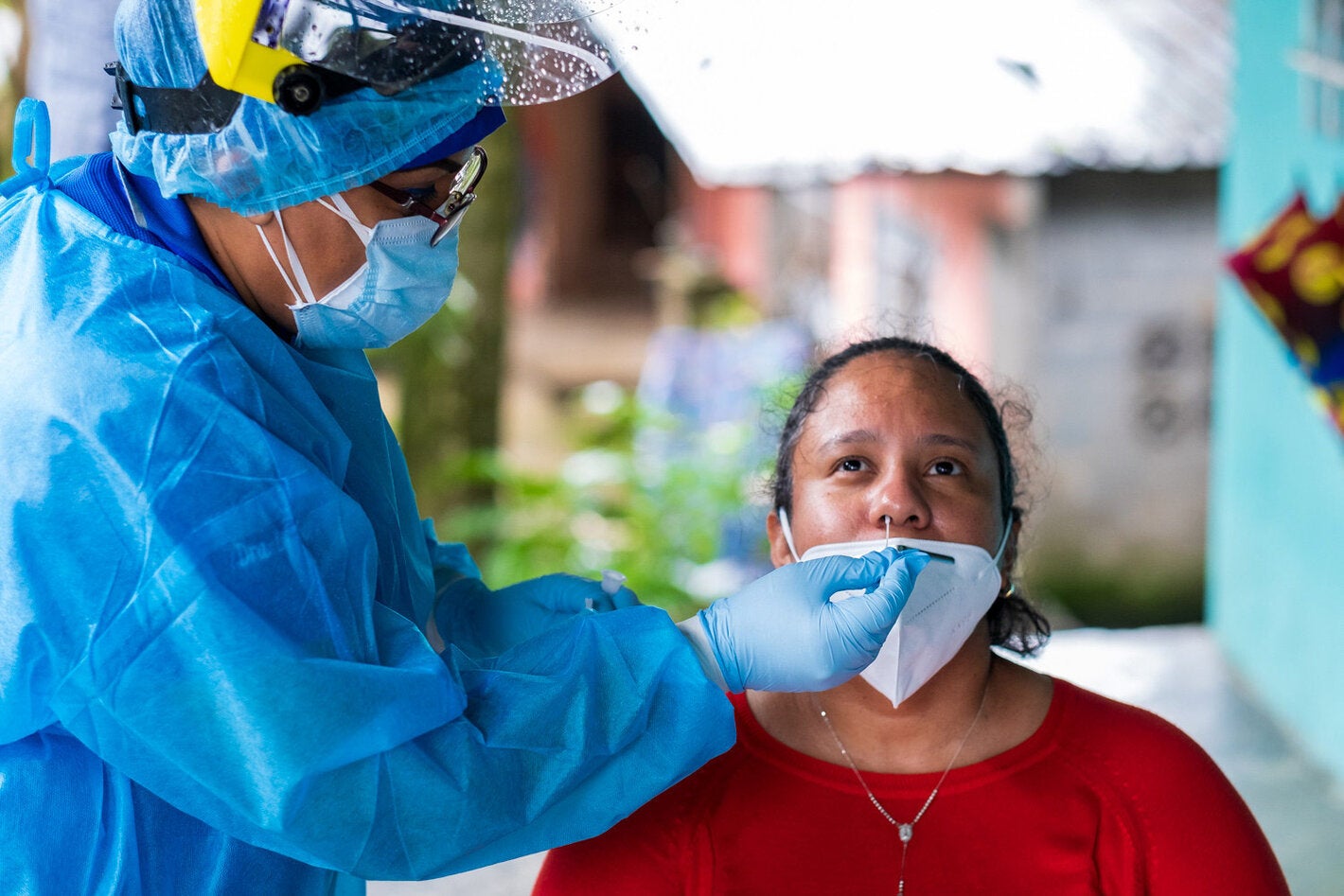
Washington, DC, 30 de September de 2022 (PAHO)- In an update on COVID-19 presented at the 30th Pan American Sanitary Conference, the Director of Health Emergencies of the Pan American Health Organization (PAHO), Ciro Ugarte, stated that “we are transitioning from an acute phase of the pandemic to more sustained control of the virus.”
Since the SARS-CoV-2 virus first appeared until the 17 September 2022, the Region of the Americas has reported more than 177 million cases and 2.8 million deaths, 29.1% and 43% of the global total respectively. In the last 14 days, cases increased by 0.7% and deaths by 0.3%.
Regarding the future of the pandemic, Ugarte said that the worst-case scenario, "particularly if we fail to ensure surveillance and increase vaccination coverage," is one in which a more virulent and highly transmissible variant appears against which vaccines are less effective, thus prolonging the pandemic.
"We have been on a long journey these past 33 months,” Ugarte said, urging that the way forward requires resilient health systems and services based on primary care, strong epidemiological surveillance and the expansion of vaccination programs. “The experience of COVID-19 showed us that countries need up-to-date emergency procedures, flexible public health measures and health networks that can rapidly deploy human resources and health supplies.”
During his presentation, Ugarte detailed the technical cooperation provided by PAHO and the achievements attained. He also highlighted epidemiological intelligence as well as the strengthening and expansion of molecular detection in laboratories in the region, which have made it possible to track the virus and its variants, and to advise on policies to tackle it.
The Director of Health Emergencies at PAHO also highlighted the progress and challenges of vaccination in the Region. He said that almost 2 billion doses of COVID-19 vaccine were administered in the Americas, 150.8 million of which were delivered through PAHO's Revolving Fund to 33 countries, many of them through donations.
While around 70% of people are fully vaccinated in Latin America and the Caribbean, Ugarte expressed concern that "averages hide the real situation in some countries where coverage remains low,” a factor that puts the region at risk of further waves as well as the appearance of new variants.
From its strategic reserve in Panama, PAHO has managed 227 shipments of health supplies to 35 countries and territories in the region, including diagnostic tests, personal protective equipment and medicines.
PAHO has also given workshops, formulated guidelines and carried out technical missions to strengthen countries' response capacities at the first level of care, clinical management, rational use and sustainable use of oxygen, infection prevention and control, and risk communication, among others.



